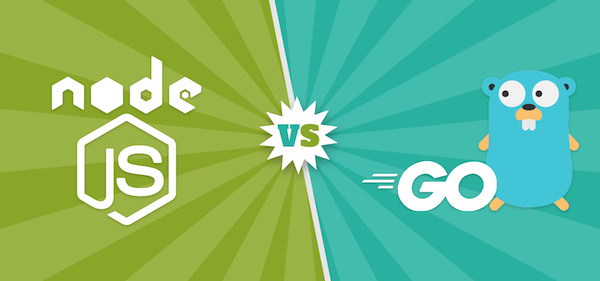Switching from node.js to golang
Golang is the best language for building scalable, high-performance applications. Its simplicity, concurrency support, and performance make it a clear choice for developers who want to build efficient, scalable applications with minimal effort.

As a developer, I have always been a fan of JavaScript and its various frameworks, particularly node.js. However, when it came to building large-scale applications with high performance requirements, I found myself constantly battling with the limitations of node.js.
That's when I decided to give golang a try.
Golang, or Go, is a statically-typed, compiled programming language developed by Google. It is known for its simplicity, concurrency, and performance.
After making the switch, I immediately noticed the difference in speed and efficiency. Golang's compiled nature allows for faster execution and the ability to handle more concurrent requests. This was particularly useful for the high-traffic applications I was building.
The language itself is also very straightforward and easy to learn. Its simplicity and clear syntax make it a breeze to read and write. Additionally, the Go community is incredibly helpful and supportive, providing a wealth of resources and tutorials for newcomers.
One of the best things about golang is its built-in concurrency support. This allows for the creation of highly-scalable, parallel applications with minimal effort. This was a game-changer for me, as I no longer had to rely on external libraries or frameworks to handle concurrent requests.
Node.js is a JavaScript runtime built on Chrome's V8 JavaScript engine, while golang is a statically-typed, compiled language developed by Google. This means that golang offers faster execution and better performance than node.js.
Another difference is the way they handle concurrency. Node.js uses an event-driven, non-blocking I/O model, which allows it to handle multiple concurrent requests. However, golang has built-in support for concurrency, making it easier and more efficient to create parallel applications.
In terms of simplicity and ease of use, golang has a clear advantage. Its syntax is clean and straightforward, making it easy to read and write. Additionally, the Go community is very helpful and provides a wealth of resources for beginners.
In summary, switching from node.js to golang has greatly improved my development experience. I am now able to build high-performance, scalable applications with ease thanks to golang's simplicity, concurrency support, and performance. I am happy to have made the switch and can confidently say that I will never go back to node.js.
\m/